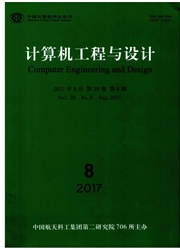

 中文摘要:
中文摘要:
针对超分辨重建中过完备字典一方面需要庞大数据库来训练,另一方面利用高度冗余的过完备字典对图像进行稀疏编码,具有潜在的不稳定性和缺乏自适应表示图像块结构的问题,提出一种超分辨率算法。在不需要借助额外数据库的情况下,采用PCA(principal component analysis)迭代训练经过K-均值聚类的低分辨率图像块,生成具有自适应稀疏表示图像块能力的简单子字典,用于超分辨率重建,提高重建图像的质量。利用非局部相似性和迭代反投影对重建图像进行后处理,进一步提高重建图像的质量。实验结果表明,该算法重建得到的图像在主观视觉效果和客观评价上都优于现有的几种基于学习的超分辨率算法。
 英文摘要:
英文摘要:
Traditional over-complete dictionaries on the one hand need a large additional database for training,on the other hand,it uses highly redundant over-complete dictionaries to do sparse decomposition,which is potentially unstable and lack of the selfadaptability to present various structures of image.To solve these problems,a super-resolution reconstruction algorithm was proposed.To improve the quality of the reconstructed image,a set of simple sub-dictionaries which had the adaptability to sparsely represent images for super-resolution reconstruction was generated using PCA iterative method.The sub-dictionaries learnt from the low-resolution image were patched using K-mean clustering instead of outer dataset.In addition,non-local similarity and iterative back-projection were exploited to further improve the quality of reconstructed images.Experimental results show that the proposed algorithm achieves better results than other example learning-based algorithms in terms of both visual perception and objective evaluation.
 同期刊论文项目
同期刊论文项目
 同项目期刊论文
同项目期刊论文
 期刊信息
期刊信息
